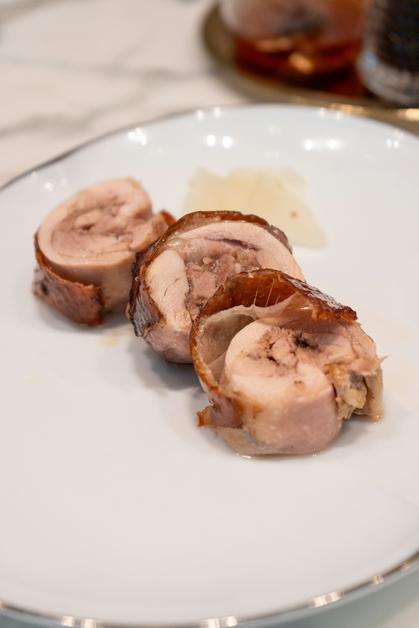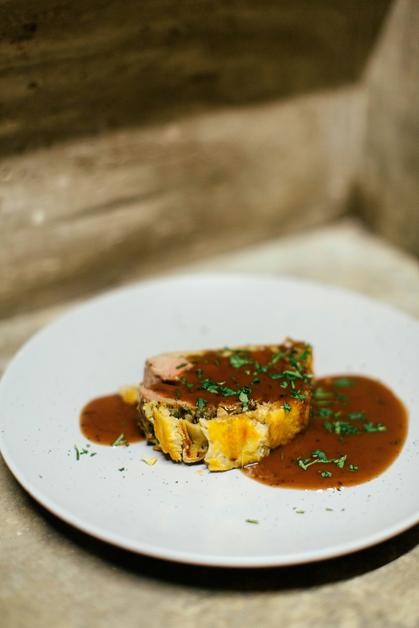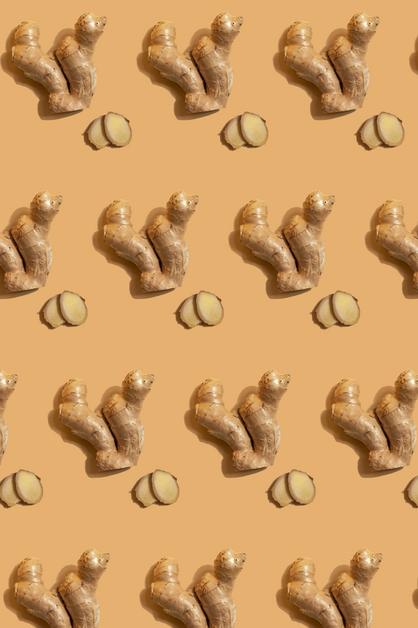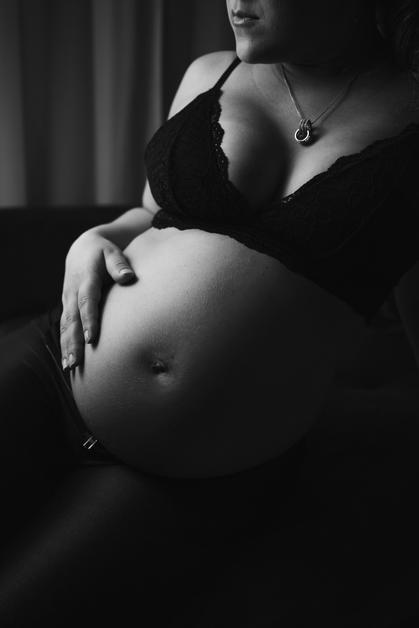Indulgent, celebratory, and often the centerpiece of festive gatherings, foie gras occupies a special place in culinary traditions—but when foie gras pregnancy comes into focus, the conversation changes shape. For many parents-to-be, the thrill of sharing in cherished rituals is tangled with anxieties about hidden food risks, ingredients, and the weight of responsibility that comes with each choice. How should you approach foie gras pregnancy moments? What truly matters when balancing your enjoyment, your baby’s development, and, yes, the delicious pull of that silken slice? Let’s explore: from the nitty-gritty of food safety and nuanced medical explanations to smarter choices and professional recommendations.
What Every Parent Should Know About Foie Gras Pregnancy
A Delicacy Wrapped in Complexity
The words “foie gras pregnancy” may spark a wave of questions. Is it a forbidden treat, or can you still partake with a few precautions? On the surface, foie gras—a smooth, intensely flavored pâté crafted from duck or goose liver—seems harmless, even nutritionally dense, offering a rich source of iron and vitamin B12, both of which support your growing child’s neural and circulatory systems. Yet, beneath the surface, an intricate matrix of foodborne pathogens, retinol content, and production standards emerges.
Pregnant women are repeatedly reminded: certain foods demand greater vigilance. Raw or undercooked animal products, regardless of culinary prestige, present identifiable hazards. Foie gras pregnancy questions arise not from the dish’s rarity, but from the very processes that make it a delicacy—high-fat feeding, artisanal crafting, and traditional preparation methods. The implications for maternal health, fetal wellbeing, and family celebrations are genuinely important.
Recognizing the Risks: Microbial, Nutritional, and Practical
Listeria and Pregnant Immune Response
You might wonder—can foods as refined as foie gras harbor dangerous microbes? The blunt answer: yes. Listeria monocytogenes, a stealthy bacterium unfazed by cold storage, can lurk in raw or semi-cooked foie gras. For most adults, infection would pass with little fanfare. Pregnant individuals, however, present a very different immune landscape, where even seemingly innocuous exposures may result in consequences: miscarriage, preterm birth, or severe neonatal illness.
What complicates matters? Listeria can cause only mild digestive symptoms, or none at all in the expectant parent, while quietly crossing the placental barrier—a detail that underscores the subtlety with which foie gras pregnancy intersects with risk. But the story doesn’t end here.
Toxoplasmosis and Salmonella: Silent Threats
Less commonly discussed, but no less relevant, is toxoplasmosis—a parasitic infection usually reserved for cat litter or poorly cooked meats in the collective imagination. However, when foie gras is prepared artisanal-style or left semi-cooked, the possibility of toxoplasma gondii contamination remains real. If you lack prior immunity, your fetus could be vulnerable to neuro-ocular complications.
Salmonellosis, meanwhile, trades subtlety for drama: diarrhea, fever, dehydration—conditions far from ideal in pregnancy, as they can impact uterine blood flow and, by extension, fetal nourishment.
Retinol, Fats, and the Fine Line of Nutritional Moderation
Should nutrition take center stage? Absolutely. Foie gras is laden with vitamin A (retinol)—a micronutrient you need, but not in abundance. High levels, especially from animal sources, are linked with congenital anomalies. Add in a cocktail of saturated fats and cholesterol, and as the science grows ever sharper on cardiovascular health, the need for portion control intensifies.
In sum: foie gras pregnancy is less about yes or no, and more about the how—cooking methods, sourcing, portion size, and informed vigilance.
Smarter Choices: Cooking Methods, Pasteurization, and Food Labels
You might ask, “Can any foie gras pregnancy experience be truly safe?” The answer depends on temperature:
- Industrially pasteurized foie gras or tins heated above 100°C (212°F) eradicate most pathogens, dramatically reducing risk.
- Homemade, artisanal, or raw/semi-cooked varieties lack these safeguards, no matter how lovingly prepared or visually appealing. Even prestigious quality labels cannot guarantee safety without rigorous processing.
- Pan-seared foie gras seduces with aroma and sizzle, but only delivers safety if thoroughly cooked—raw or “just pink” interiors do not cut it for pregnancy.
To translate this practically:
- Seek products marked “pasteurized” or “sterilized.”
- Prioritize established, traceable supply chains and reputable brands.
- Transport in coolers if needed, store under 4°C (40°F), and consume within 24-48 hours after opening.
These steps may seem restrictive, yet they’re designed to transform the foie gras pregnancy question from a stress point into a manageable consideration.
Celebrating Safely: Alternatives That Satisfy
Does skipping foie gras mean missing out on festive joy? Not at all. The world of plant-based pâtés, inventive terrines, and cooked fish rillettes invites you (and your taste buds) to discover richness and complexity elsewhere.
Alternatives include:
- Vegetarian “faux gras”, often crafted from chickpeas, mushrooms, or seaweed. These spreads mimic the texture and depth of foie gras, minus the microbial hazards.
- Well-cooked fish, such as salmon terrine or tuna pâté, provided no raw ingredients linger.
- Cooked vegetable or mushroom pâtés, brimming with flavor and nutritional benefits.
Why choose these? They offer families new traditions, remove the microbial and retinol puzzle from the meal, and encourage everyone to celebrate together without fear.
The Nutritional Backbone: What Foie Gras Offers—And Why Moderation Matters
Let’s not paint foie gras only in shades of danger. This luxury dish contains monounsaturated fatty acids, known for supporting heart health. Iron and selenium, two trace minerals underpinning red blood cell production and antioxidant resilience, both feature prominently in foie gras’s nutritional profile. There is also a solid boost of vitamin B12, which plays a fundamental role in fetal nerve formation.
But high levels of vitamin A, fats, and cholesterol are double-edged swords. Occasionally enjoyed, and folded into an otherwise balanced pregnancy diet, these nutrients are beneficial. Regular, unchecked indulgence, on the other hand, can tip the scales toward toxicity or cardiovascular strain.
Medical Guidance and Official Recommendations: Clarity in a Landscape of Opinion
Seeking up-to-date scientific advice? Extensive research, as well as national and international food safety authorities, converge on a few consistent points:
- Only consume foie gras during pregnancy if it is pasteurized, fully cooked, industrial-grade, and properly refrigerated.
- Limit quantities—think two or three slender slices at most—integrated into a varied, nutrient-dense diet.
- Scrutinize labels for specifics on processing, and do not rely on visual inspection alone.
Healthcare providers—doctors, midwives, specialized dieticians—express clear consensus here. Experiencing fever, gastrointestinal pain, or persistent digestive troubles after consuming foie gras, especially during pregnancy, justifies a prompt consultation. Don’t hesitate. Each family, every pregnancy, is unique—a transparent conversation with your practitioner always helps tailor reassurance and next steps to your specific context.
Key Takeaways
- Foie gras pregnancy does not require eliminating pleasure; what matters is choosing industrial, pasteurized, and fully cooked options while skipping raw, homemade, or artisanal varieties.
- Maintain scrupulous standards for storage, utensil hygiene, and label-reading—these efforts substantially cushion maternal and fetal health.
- Seek out safe, inventive alternatives—plant-based and well-cooked fish spreads swing the door wide open to inclusive celebration.
- Remain mindful of vitamin A and lipid intake: foie gras, in pregnancy, should be an occasional highlight, not a dietary staple.
- When questions persist or symptoms arise, consulting with a healthcare specialist ensures decisions are aligned with the latest science and your family’s values.
Parents taking a thoughtful approach to foie gras pregnancy can enjoy both tradition and peace of mind. And for those looking to deepen their support network, access to tailored health guidance and free screening tools is possible—explore the Heloa app for updated, specialist-approved resources designed for every step of the parenting journey.
Questions Parents Ask
Is it safe to eat foie gras while breastfeeding?
Breastfeeding often amène de nouvelles interrogations sur l’alimentation. Bonne nouvelle : consommer du foie gras pendant l’allaitement n’entraîne pas de risques spécifiques pour le bébé, tant que le produit est bien cuit, pasteurisé et respecté dans des quantités raisonnables. Veillez simplement à choisir des produits issus de filières sûres et à surveiller les signes de tolérance chez votre enfant. En cas de doute ou de question, n’hésitez pas à consulter un professionnel de santé, votre bien-être et celui de votre bébé sont la priorité.
Are there any long-term effects on the baby if foie gras is consumed during pregnancy?
Rassurez-vous : il n’existe pas d’éléments scientifiques démontrant un danger persistant pour le bébé si un peu de foie gras a été consommé pendant la grossesse, surtout si cela reste ponctuel et si le produit a été traité selon les normes de sécurité. Les recommandations se concentrent avant tout sur la prévention des infections alimentaires et la limitation d’apports excessifs en vitamine A. Si vous avez mangé du foie gras sans savoir qu’il était déconseillé ou s’il ne respectait pas toutes les précautions, pas d’inquiétude : il y a très rarement de conséquences à long terme. En cas d’inquiétude ou de symptômes, un échange avec votre médecin vaut toujours la peine pour être pleinement rassuré.
Can foie gras consumption affect my cholesterol or blood pressure during pregnancy?
La grossesse modifie naturellement le métabolisme et la composition du sang, ce qui peut rendre certaines personnes plus sensibles aux aliments riches en graisses et en cholestérol, comme le foie gras. En consommer occasionnellement et en petite quantité, dans le cadre d’une alimentation variée, ne présente pas de danger particulier. Cependant, si vous avez déjà un taux de cholestérol élevé ou souffrez d’hypertension, il importe de rester vigilant et d’en parler avec votre professionnel de santé. Sachez que chaque situation est unique, et il existe toujours des solutions pour équilibrer plaisir et santé.










